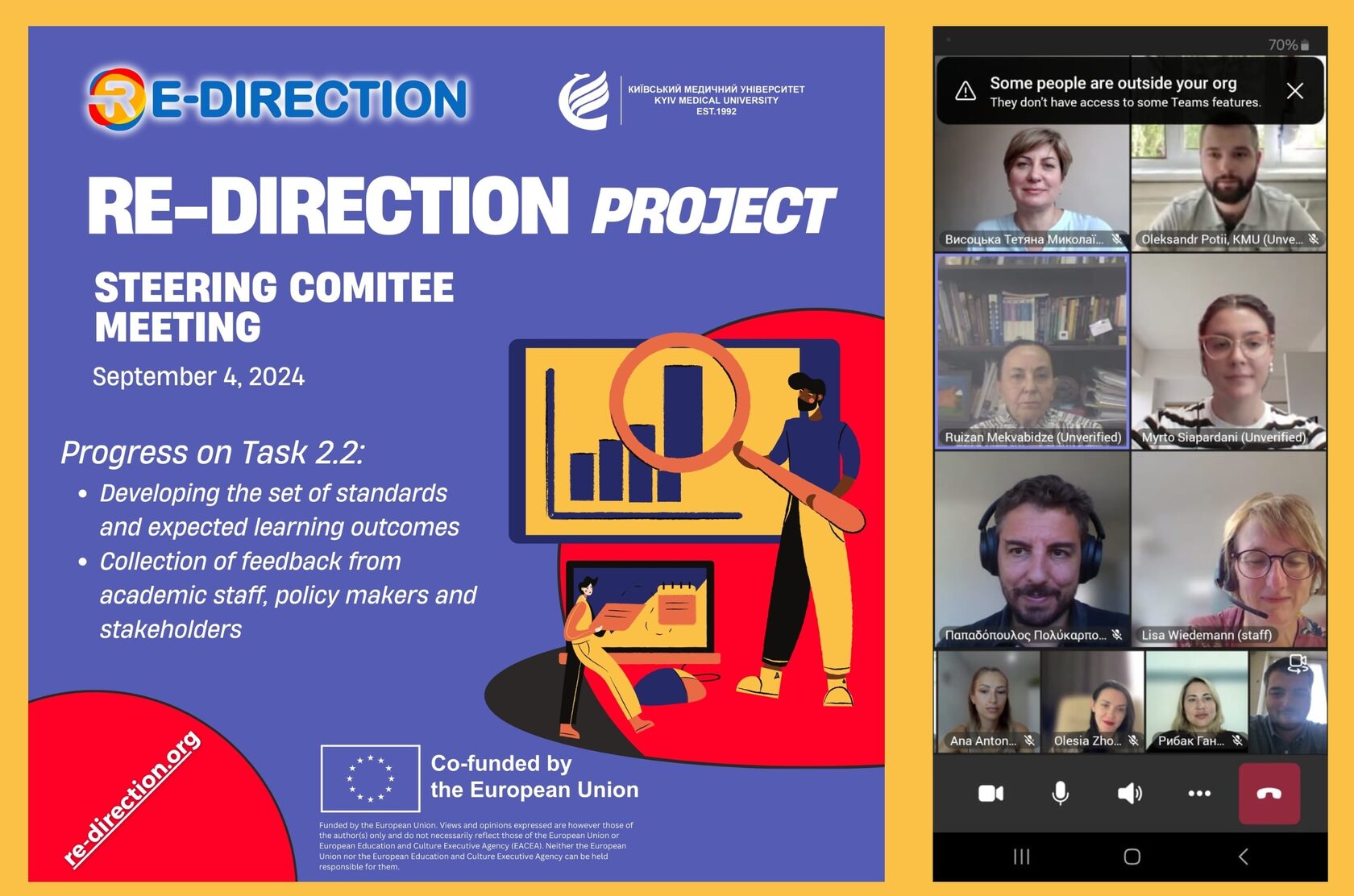We are pleased to announce that on Wednesday, September 4, 2024, the Re-Direction project’s Steering Committee held a productive meeting, discussing the current progress and upcoming actions in the development of key educational standards and learning outcomes. The meeting focused on two important actions led by the University of Patras and co-led by the Dnipro University of Technology.

Action 2.2.2: Developing Standards and Expected Learning Outcomes
In this action, the consortium is working on creating a set of standards and expected learning outcomes, which are integral to the Methodological Framework for the project. Following a comprehensive literature review and analysis, and using the template developed by NTU DP, the team is outlining learning outcomes across three key areas: Digital Transformation, Sustainability, and Inclusivity. This effort is based on the DACUM methodology, ensuring a structured and focused approach. Progress in this area will be pivotal in setting a solid foundation for educational quality within the project.
Action 2.2.3: Gathering Feedback through an Open Consultation Process
The second point of discussion revolved around the open consultation process. The consortium is preparing to gather valuable feedback from academic staff, policymakers, and stakeholders to validate the Methodological Framework. This feedback will be collected through an online consultation and aims to ensure that the framework developed in previous actions is comprehensive and relevant.
The goal is to collect feedback from at least 150 stakeholders, including 100 academic staff and 50 policymakers, across Georgia and Ukraine. The consortium will carefully select participants using a defined set of criteria to meet national regulations and project needs. Once the feedback is gathered, a meeting will be held to compare findings across countries and consolidate the data collected.
______________________________________
Funded by the European Union. Views and opinions expressed are however those of the author(s) only and do not necessarily reflect those of the European Union or European Education and Culture Executive Agency (EACEA). Neither the European Union nor the European Education and Culture Executive Agency can be held responsible for them.
More details about the project: https://re-direction.org/
#redirection #ErasmusPlus #inclusivity #sustainability #digitalization
In this action, the consortium is working on creating a set of standards and expected learning outcomes, which are integral to the Methodological Framework for the project. Following a comprehensive literature review and analysis, and using the template developed by NTU DP, the team is outlining learning outcomes across three key areas: Digital Transformation, Sustainability, and Inclusivity. This effort is based on the DACUM methodology, ensuring a structured and focused approach. Progress in this area will be pivotal in setting a solid foundation for educational quality within the project.
Action 2.2.3: Gathering Feedback through an Open Consultation Process
The second point of discussion revolved around the open consultation process. The consortium is preparing to gather valuable feedback from academic staff, policymakers, and stakeholders to validate the Methodological Framework. This feedback will be collected through an online consultation and aims to ensure that the framework developed in previous actions is comprehensive and relevant.
The goal is to collect feedback from at least 150 stakeholders, including 100 academic staff and 50 policymakers, across Georgia and Ukraine. The consortium will carefully select participants using a defined set of criteria to meet national regulations and project needs. Once the feedback is gathered, a meeting will be held to compare findings across countries and consolidate the data collected.
______________________________________
Funded by the European Union. Views and opinions expressed are however those of the author(s) only and do not necessarily reflect those of the European Union or European Education and Culture Executive Agency (EACEA). Neither the European Union nor the European Education and Culture Executive Agency can be held responsible for them.
More details about the project: https://re-direction.org/
#redirection #ErasmusPlus #inclusivity #sustainability #digitalization